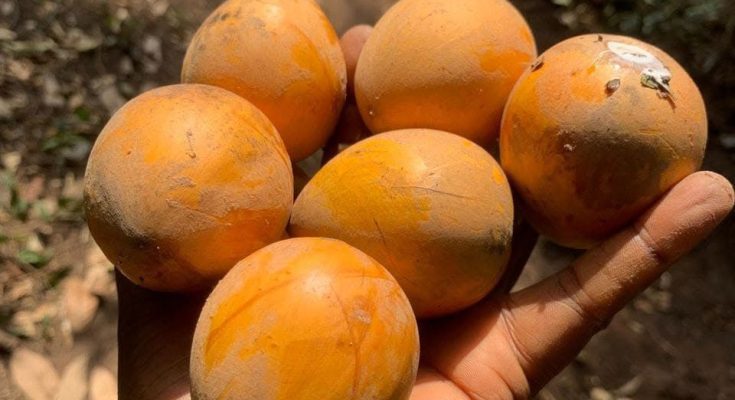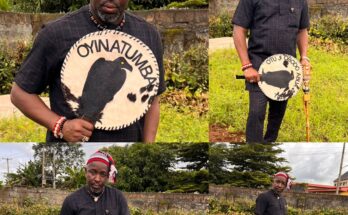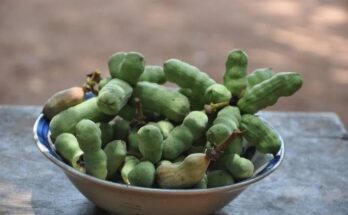Udara as the name sounds simply mean, “If it falls, you lick”
Udara is a female deity of fertility and protection. The difference there is that Udara is for protection, while Akwali omumu is for prosperity, but both deities are for fertility.
Do you know that when it comes for Fertility, Udara is believed to be the mother of Akwali Omumu (Udara mutara Akwali Omumu).
Udara is a very powerful tree and an abode of the spirit of Dead ancestors and that of the unborn children.
It is forbidden in some Igbo communities to pluck the Udara from the tree. MUdara tree wade off untimely death and spirit of barrenness any where it grows, be it in the community or village.
Udara is not planted by anyone and it is an abomination to cut down this tree of fertility, the giver of children without proper consultation and appeasement.
It is an abomination to defeacate under an Udara tree and Udara is feared in most part of Igbo land because it is believed to be the home of the spirits.
People rarely visit udara at night.
In some communities in Igbo land udara is not owned by anyone and no one harvest the seed for sale for it is regarded as selling children in the market, but now people use money to buy it in the market.
Udara tree can live up to 1000 years and the bark and leaves of the udara tree is used to cure fever and some minor sicknesses.
Udara has a notable relevance in the culture of Ndigbo. Its existence is shrouded in mystery and superstition.
The cultural formation of the Udara has several folktales centered on the tree.
One ancient story of an orphan who planted an Udara tree because his step mother spitefully excluded him when she shared Udara to her children. The orphan faithfully sang to the seed he’d planted until it germinated, grew and produced lush fruits that always fell everytime he wanted to lick Udara.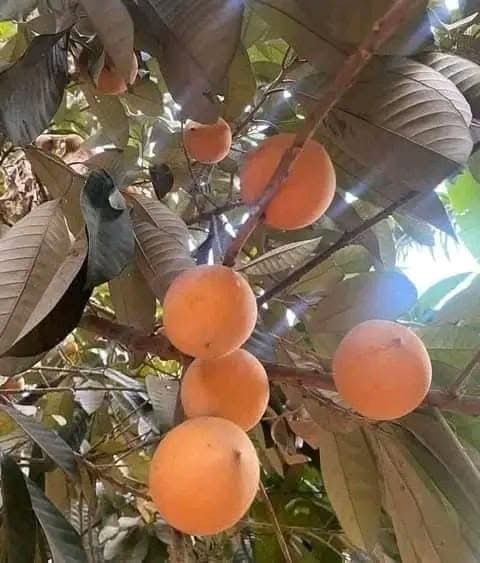 One of the stanzas of the song in the story goes like this:
One of the stanzas of the song in the story goes like this:
“Udara mu mia, Nda
“mia mia mia, Nda
“Nwunye nna mu oo, Nda.
“Gote Udara lachaa, Nda
“Lacha Lacha Lacha, Nda
“Lachapu nwa enwe nne, Nda
“Lachapu nwa enwe nna, Nda.
“Enu uwa bu olili, Nda
“Onye nosia onaba, Nda.
Most people can remember the impact of this song told by our fathers during moonlight folktales.
Instrestingly, Udara tree is sacred in most Igbo community, it is the abode of spirit children and children were therefore forbidden from going near the tree at oge olu..(Oge olu means working hours) because the village was usually quiet when parents, guardians, and adolescents went to farming, children were warned to stay close to the homestead and to avoid going to pick Udara at this time.
It was believed that any child that goes near the Udara tree at Oge olu could be stolen by the spirits
During ancient days most women with issues of infertility sits under the shade of the Udara tree to wait in the hope that one of the good spirit children can come to them.
Many years ago, this tree was usually found in the village square. The fact that no one knew who planted it added to its mystery. It was (is) communally owned; anyone could pick and enjoy the fruit of this tree.
Plucking or climbing the Udara tree was, however, considered a taboo in the whole of Igbo land.
Anyone who wanted to eat of the fruit of this tree waited patiently for it to fall. No one knows the reason for this but I think this law was formulated to instill discipline and patience in the people.
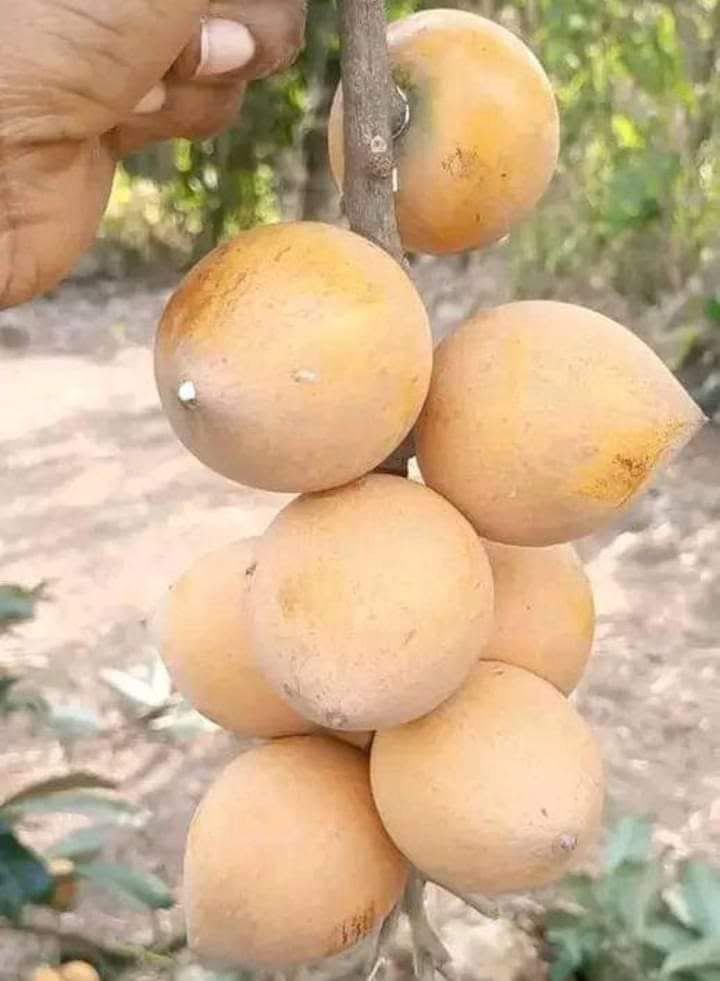 Anyway, when Udara is in season, children converge under the tree early in the morning and at full moon to play and wait for the fruit to fall.
Anyway, when Udara is in season, children converge under the tree early in the morning and at full moon to play and wait for the fruit to fall.
However, some people disobey this unwritten rule guiding the treatment of Udara fruits and trees. They still throw stones and other objects on the fruit when they are desperate to enjoy the fruit. This has led to the culture of ‘tying palm frond’ (imachi Udara) on the tree to deter people from throwing stones or other objects at the fruits.
The traditions of IMACHI UDARA in Igbo land cautions any person whether adult or underaged caught throwing stones or any other object at Udara fruits in a bid to pluck them will receive emergency visitors in his or her father’s compound. The visitors may be mainly masquerades of different types with canes. This means that the masquerades will beat the person that day to teach him or her how to respect what belongs to the public.
Udara may grow in a farmland or other lands owned by individuals but it does not significantly mean that the owner of the land where the Udara tree grows on owns it.
Though you may cut down the Udara tree for development or other reasons BUT before you do that, you must first call children of the village together, inform and appease them by holding a small feast (saraka) for them.
You should plead with them to permit you to cut the Udara tree down. If they refuse, you dare not cut it, else their anger will attract spiritual punishment for you.
Udara.
